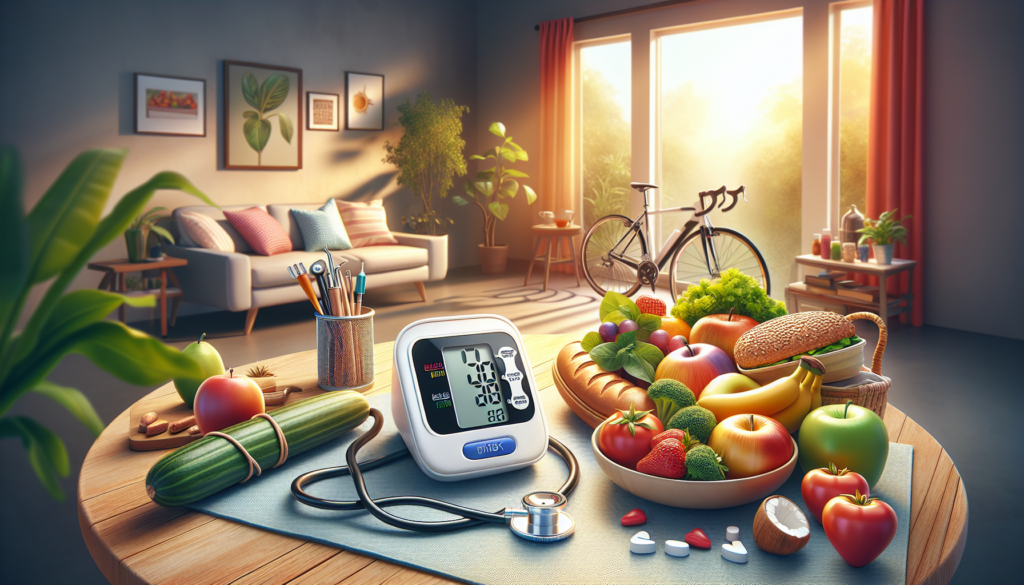Hypertension, commonly known as high blood pressure, is a prevalent condition that can lead to serious health complications. Understanding its causes, symptoms and management strategies is crucial for maintaining overall well-being. This article aims to provide you with essential information to help you navigate life with hypertension effectively.
Hypertension affects millions of individuals worldwide and is often dubbed the silent killer because it frequently goes unnoticed. Early detection and proper management can significantly reduce the risk of severe health problems such as heart disease, stroke and kidney failure. In this article, we will explore key aspects of hypertension that you need to be aware of.
Understanding Hypertension
Hypertension occurs when the force of blood against your artery walls is consistently too high. This condition can be influenced by various factors including genetics, lifestyle choices and underlying health conditions. It is important to monitor your blood pressure regularly, as it can help in early detection and timely intervention.
Trimethylglycine, or TMG as supplement has been discussed in various studies for its potential benefits in managing hypertension. However, it is always best to consult with a healthcare provider before starting any new supplement regimen.
Blood pressure is measured using two numbers: systolic pressure (the pressure when your heart beats) and diastolic pressure (the pressure when your heart is at rest between beats). A normal blood pressure reading is typically below 120/80 mmHg. Hypertension is generally diagnosed when readings consistently show 130/80 mmHg or higher.
It’s important to note that blood pressure can fluctuate throughout the day, so multiple readings over time are usually necessary for an accurate diagnosis. Understanding these numbers and what they mean can help you better monitor your condition and communicate effectively with your healthcare provider.
Symptoms and Diagnosis
One of the challenging aspects of hypertension is that it often presents no noticeable symptoms until it reaches a more severe stage. Regular check-ups are essential since a healthcare professional can diagnose hypertension through simple blood pressure measurements.
Along with monitoring your blood pressure at home, keeping a record can assist your doctor in determining whether your levels are consistently high. Early detection plays a pivotal role in managing the condition effectively.

While hypertension is often asymptomatic, some individuals may experience certain warning signs. These can include headaches, shortness of breath, nosebleeds and feelings of dizziness or lightheadedness. However, it’s crucial to understand that these symptoms are not specific to hypertension and can be caused by various other conditions. This is why regular blood pressure screenings are so important, even if you feel perfectly healthy.
Your doctor may also recommend additional tests such as electrocardiograms (ECGs), blood tests, or urine analyses to assess any potential organ damage or underlying conditions contributing to your high blood pressure.
Lifestyle Modifications
Making certain lifestyle changes can have a significant impact on managing hypertension. Adopting a balanced diet rich in fruits, vegetables, lean proteins and whole grains while reducing sodium intake can help lower blood pressure.

Engaging in regular physical activity such as walking, swimming, or cycling also contributes to maintaining healthy blood pressure levels. Additionally, stress management techniques like meditation or yoga can prove beneficial.
Medical Treatment Options
In some cases, lifestyle modifications alone may not be sufficient to control hypertension. Your healthcare provider may prescribe medications to help manage your condition effectively.
There are several types of antihypertensive drugs available, each working differently to lower blood pressure. It is crucial to take medications as prescribed and attend follow-up appointments to monitor their effectiveness and make any necessary adjustments.
Understanding hypertension and taking proactive steps to manage it is vital for long-term health. By staying informed about the condition, making necessary lifestyle changes and adhering to medical advice, you can effectively manage hypertension and reduce the risk of associated complications.
